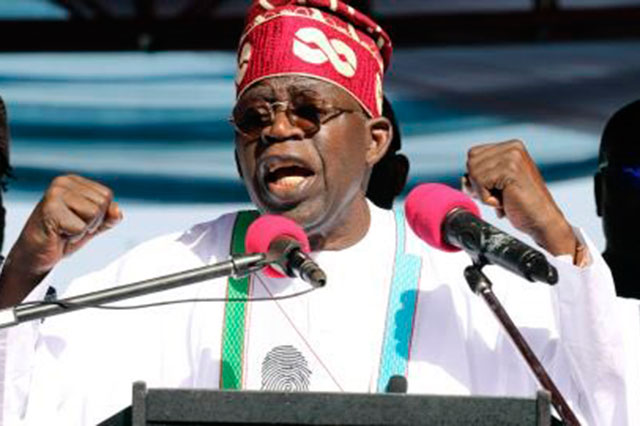Abuja – Nigeria’s president said on Wednesday the reforms undertaken by his administration have yielded results and there will be no reversals.
Presenting the country’s 2025 budget to lawmakers in the capital Abuja, President Bola Ahmed Tinubu said restoring macroeconomic stability and improved security are the key points of the proposed 47.90 trillion naira ($31.22 billion) budget for 2025.
“This budget reflects a renewed commitment to strengthening the foundation of a robust economy while addressing critical sectors essential for the growth and development we envision,” he told lawmakers.
Tinubu has been criticised for abolishing a longstanding fuel subsidy and floating the naira currency shortly after he took office.
A proposed tax reform has also exposed regional tensions between the country’s predominantly Muslim north and Christian south.
Acknowledging that the reforms have been tough, he said the economy has responded positively and promised targeted fiscal stimulus packages to sustain the momentum of the gains recorded.
Nigeria’s central and northern regions have suffered a jihadist insurgency for 15 years. Gangs with ties to Boko Haram and the Islamic State West Africa Province (ISWAP) have also gained a strong foothold.
Tinubu said the budget allocates the most funds to security to boost the morale of security agencies.
“Security is the foundation of all progress. We have significantly increased funding for the military, paramilitary, and police forces to secure the nation, protect our borders, and consolidate government control over every inch of our national territory.
“By restoring peace, we restore productivity, revive businesses, and rebuild our communities.”
Nigeria is currently suffering one of its worst economic crises in decades with inflation reaching 34.6 percent in November. Tinubu said he expects this to drop to 15 percent in 2025.
Describing the budget as “ambitious but necessary”, he said the country is targeting a budget deficit of 3.9 percent of GDP.
Tinubu said the economy will perform better in 2025 with reduced importation of petroleum products while domestic refineries increase exports and a bumper harvest that will reduce reliance on food imports.
The parliament is on a tight deadline to pass the budget before the new year to follow the January to December budget cycle.
Godswill Akpabio, the senate president, said the legislature will pass a law to extend the lifespan of the 2024 budget to June 2025.


